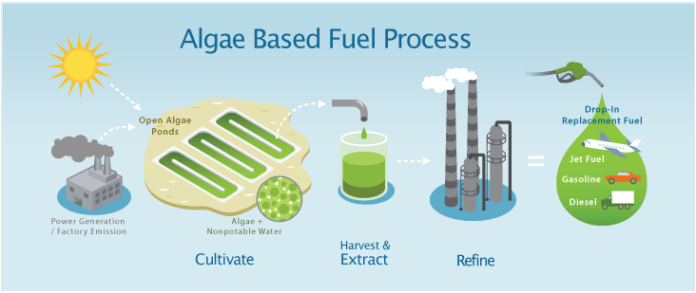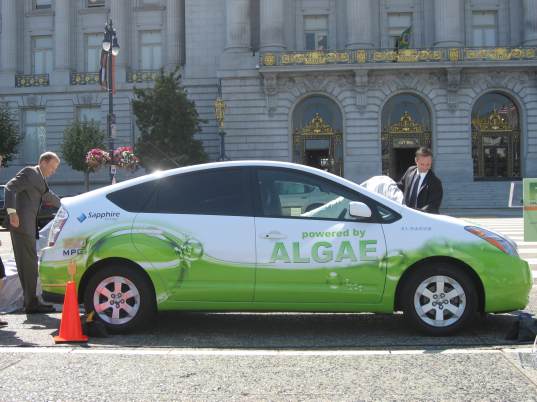**SHAWNEEMCHENRY’S POST
The global oil supply has been a topic of heated debate in recent years. On one hand, there is the concern that oil reserves are being depleted and we will be without a heavily relied on resource in the near future. On the other hand, there is the notion that we must continue to seek additional oil reserves and to refine every last drop from current ones. According to BP’s Statistical Review of World Energy, the global oil supply has increased since 2010. This statistics doesn’t amount to much, though, because “at today’s consumption rates, the world has proved reserves sufficient to meet current production for 54 years for oil.” (BP) The underlying issue of a dependency on a nonrenewable resource still remains. George W. Bush summed it up perfectly when he said, “America is addicted to oil.” The solution to this addiction isn’t to exhaust our efforts and bank accounts until we can deplete the last reserve, but rather to curb our dependency from a nonrenewable source to one that is more renewable and sustainable.
Sapphire Energy essentially mimics those natural processes that produced crude oil millions of years ago. This mimicry can occur in four different methods.At Sapphire Energy, numerous open algae ponds line the facility grounds. Algae absorb sunlight and carbon dioxide and through high temperatures and high pressures, oil is extracted. The chemical composition of algal oil is so similar to crude oil that it does not render existing infrastructure obsolete.
Sapphire Energy is most recognized by the supportive role they played in Josh Tickell’s effort to educate the public about greener fuels. Josh Tickell is a proponent of alternative fuels, particularly in the transportation sector. He was first known for his nonprofit educational program, the Veggie Van Organization, as well as for his 2008 Sundance Film Festival award-winning documentary, Fuel (2008).
In his film, Tickell travelled across the globe in his van that ran off of fryer oil. He is more recently known for his modified Toyota Prius known as Algaeus. Algaeus is a hybrid that runs off of electricity and algal biofuel from Sapphire Energy. The vehicle made it from coast to coast on 25 gallons of algal biofuel, averaging about 52 mpg. Tickell’s modified Prius challenged the largest concern of alternative fuel based vehicles, short range anxiety.
There have been numerous analyses performed on the efficiency and feasibility of algal biofuel production. According to a study published in Bioresource Technology journal, carbon dioxide emissions from algae fuel were capable of being 50-70% lower than emissions from oil. As is often the case with renewable or alternative energies, there is no practicality involved. The United States Department of Energy determined that only 30,000 square kilometers, or an area about half of the state of South Carolina, would be required to replace petroleum in the United States. This seems like a substantial amount of land; however, a study conducted at the Pacific Northwest National Lab concluded that algal production could be implemented in 14% of the United States, or an area the size of Texas and New Mexico.
There are current policies in place that already acknowledge algae. Two said policies are the Department of Energy’s Biomass Program in 2010 and the Biomass Crop Assistance Program (BCAP).
Algal biofuels are a seemingly appropriate alternative to our current fuel resources, so it doesn’t make sense as to why they haven’t been widely accepted. A few concerns that still remain revolve around cost and need for further research. Should we also be concerned about relying on particular strands of algae? Is it possible that these strands could eventually evolve and render the costly operation invalid? More importantly, will algal biofuels ever take off? Will these groundbreaking technologies and breakthroughs disappear like the EV did? Is it fair that the government is funding and supplementing algae programs and farmers? Should algae production be included in any other federal policies, such as the Clean Air Act or Clean Water Act?




Right down the road from us…
http://www.biorefinery.uga.edu/brec.html
Biofuels have not been a popular choice because of the bad press they have received concerning food based biofuel products. Corn-based and soybean biofuels are not welcomed due to the increasing price of food and the decreasing supply. However, I like the idea of algae based biofuel. It seems socially, economically and ecologically sustainable especially since it can be grown in a controlled environment.
Is it fair that the government is funding and supplementing algae programs and farmers? ABSOLUTELY. The government seems to be involved with oil, gas, renewable energy research – so why not biofuels? ExxonMobil joined with a biotech research company in 2009 to produce algae-based biofuels. Although it seems that algae research will similarly end up at the mercy of the oil and gas companies, like the EV, I feel consumers will have influence over its success. With the latest push by consumers for more energy efficient and environmentally friendly fuels, it seems that algae based biofuel technology may have a future in the fuel industry.
http://www.cnn.com/2009/TECH/science/07/15/exxon.algae.biofuel/index.html?iref=allsearch
The creation of the algae based fuel process is truly amazing. It shows how creativity, an open mind and research can change the world. In the future I think that algae based fuel could be a viable source of energy that many people use. Addressing your questions, I do believe that we should not rely on one particular strand of algae, but I do believe that the process should be started with one strand. Right now, as you stated, the major concerns surrounding algae based fuel is the cost and research, but as the program grows that might change. If algae based fuel can get enough of a start then the money and research will follow. I believe that by starting with one strand and proving that the process works and gaining financial contributors’, then the research will lead to more stands of algae that could also be beneficial. As for the strand evolving and changing so that the operation becomes invalid, could the process not be altered as well?
I think that the idea of an algae powered car is awesome and it only used 25 gallons going coast to coast which is even more amazing. My only concern is that algae based fuel uses more energy in production than other biofuels (Richards). “Additionally, algae-based biodiesel and bioelectricity production processes also require substantial amounts of water and emit more greenhouse gases” (Richards). The problem then comes down to, is the energy loss in production worth the algae based fuel? At some point people are going to have to weigh the pros and cons of every process and determine which fuel source is the best. Personally I think that algae based fuel is well worth the con of having more energy output during production, but that is not a decision that I can make alone. Maybe more Americans would like to switch to canola or switch grass but without a public opinion nothing will change.
Richards, Zak. “U.Va. Researchers Find High Energy Output From Algae-Based Fuel, But ‘No Silver Bullet'” UVA Today. N.p., 8 Aug. 2011. Web. 03 Oct. 2013. .
I like the idea of being able to adapt what we already have into a green solution such as biofuels, especially algae. Besides the expense, biofuels are very water intensive and could be issues in states that have experienced frequent droughts (us). There have been cool ways that people are innovating the market though – this company, apparently, can help the refining process for biofuels by creating sucrose inside balloons using a special cyanobacteria. Biofuels are exciting to think about because, if we can find a biofuel that takes less land, less water, and less money to create, we could really see a change in the way we treat our fuels; I would say people would become more accepting of biofuels, especially if studies were to show similar, if not better, performance.
One large issue that remains with the advancement of both EV and biofuel sustainability, is that we must, really, pick one or the other. Yes, we could decide to do both, and that would be ideal if we could, but, realistically, doing one will discourage the use of another. It’s just not economically beneficial for a place to have infrastructure for both electric and biofuel based vehicles.
Adapting resources that we already have into green solutions is incredible. I really like the idea of using algae for fuels. While it is definitely possible for these strands of algae to evolve, I don’t think that we should be too concerned about relying on particular strands of algae because there may be ways to adapt future strands to be beneficial for our use. I do think it is possible for algal biofuels to take off because they are a much more environmentally friendly option that some of the other fuels that we so heavily rely on. According to Sapphire Energy’s website, studies have shown that algae biofuels could cut CO2 emissions by up to 68%. This is huge considering the fact that we are very concerned with the amount of CO2 we are releasing with our current process. As far as government activity goes, I do think that it is fair that the government support algae programs and farmers. I also think that policy should be implemented to ensure the quality of the fuel produced.
http://www.sapphireenergy.com/news-article/1876740-new-study-algae-biofuel-cuts-co2
I had no idea that someone actually drove from coast to coast in a prius that ran off of algae based fuel. That is amazing. I have heard for a long time that algae has the potential for a biofuel that the US could use so it is about time that some starts spreading the word. I think that gov’t funding farmers is definitely okay. As long as we are stepping away from oil, any kind of funding is going to be worth it. I definitely believe that algal based fuel could be widely accepted because it doesnt require us to change our entire infrastructure. We can use the gas stations to pump biofuels into our cars. We also wouldnt have to worry about buying new cars(for the most part). This lack of need to change the infrastructure is what makes me believe that algal biofuels can surpass the EV and go very far.
I believe that this biofuel can really take off but we must spread the word about it for this to happen. We must educate people that there are sources of energy that will give us the same lifestyle that we are used to while producing substantially less emissions. Until this happens, our country will continue to live by oil and die by oil.
Algae based biofuels seems like a very innovative idea for a new energy source. This biofuel could be a great way to transition from oil to a renewable energy source that is clean and sustainable. The policies we have in act now, and the changes that are currently trying to be implemented might encourage this type of oil production, simply because it decreased emissions by 60%. It seems as though this fuel would still need to be in certain areas, like PFC1344 has mentioned about the water availability. I do think, however, that it is still a source we can transition into. I think the species evolving could be a potential problem, but that could take many generations of using the strand to make any detrimental changes to where we won’t be able to use it anymore. I also think it is great that the government is getting involved and helping to fund these kinds of programs to make sure adequate research is done to ensure this fuel source will be useful for our consumption. As far as the breakthrough disappearing like the EVs that were mentioned in a previous post, I think that this could be something that oil companies can invest and transition to, especially because it mimics how crude oil is being made.
I think research in biofuels is important. There are a lot of possible downsides, just as there are with everything that undergoes research and development. That’s why we have research and development. I remain optimistic and hope that biofuels do not disappear as we’ve seen the electric vehicle do. The story about the modified Prius is certainly encouraging and shows that electric vehicles and biofuels can work, but once again….a big issue is convincing the general public. It seems to me that federal funding for biofuel research is fair, and it is encouraging to read the statistics on required land for growing algae. It’s a lot of land, but it seems like it is not astronomically large to the order where it would render the technology impractical. Using biofuels from algae can help reduce our dependence on foreign oil and help to reduce the need for that natural resource. We need this oil that we are using up for other materials such as plastic…it’s not used only for transportation. There is research being done on using algae to produce plastic as well. Science Daily has this article:
http://www.sciencedaily.com/releases/2013/05/130527100524.htm
I look forward to seeing (and maybe being a part of) the widespread use and advancement of these biofuels.
I agree with you that our main problem is our reliance on oil. Our government and citizens have strived to find more and more oil for our current demands, but have not looked at different innovative ways to utilize our current infrastructure with new resources. This can be seen with the new discovery of a large oil reserve in the outback of Australia. This discovery only further drives our current infrastructure and energy practices. In order to change to this new algae biofuel, our government and citizens have to step forward and strive to make it a reality throughout our nation. I believe this is a very hard thing to do without our government forcing our society. Like the EVs, it took multiple years and new innovations to make EVs a viable option in our current market. I believe it will take multiple innovations and breakthroughs to make algae biofuels a reality. The government should start to implement research strategies that could potentially make them a viable option for our resource demands. If further research and innovations do not happen, I think they will fall out of the public eye and disappear like EVs. New companies like Proterro must step forward and make these new innovations a subject of conversation in all areas of our society. Without these companies this new biofuel will fall to the side and disappear like so many before it.
I have literally never heard of this green crude oil process with algae. I have obviously heard about biofuels being used in cars but not the growth of algae for the crude oil process that can be used in cars. The idea seems really interesting (and a little over my head to be honest though) and innovative. I agree that funding for this idea is indeed fair as funding for oil, natural gas, and electric vehicles by the government are completed, so why not this as well? I welcome algae based fuel technology because anything that can help alleviate our increased dependence on foreign oil from unstable countries is an idea that we need to acknowledge and look into as a nation. The only issue that seems discouraging to me is potentially the amount of land that is needed, but other than that, I have always been an advocate for biofuels. As always, though, the unproven nature and unreliability still remain whenever a new resource for energy is presented. I think you always will have that point in time where incredulity enters the mind of the general public as they are cautious and want something they know will work for them (right now, whether you like it or not, gas is that avenue for Americans). In addition, the tentativeness with getting the nation to commit to a new green energy idea (just like with electric vehicles) wholeheartedly will always remain. Therefore, I agree we should definitely look into this as a nation, but I think it is still really early in the research stages before we see any widespread algae biofuel movement…but just give it time.
I recently came across this company called Solazyme, Inc. via a UGA student and intern at the Office of Sustainability who interned with their CEO this summer. The company started out using genetically modified algae to create algal bio-fuels for automobiles and jets, particularly with an emphasis on creating fuels that work with already existing engines. This is particularly lofty goal, but the company is publicly traded and has grown quite substantially in the past 5 years. The company has moved away from solely producing oils for transportation technology and has moved into the creation of algal oils involved in the creation of food and cosmetic products and has signed a major contract with Unilever to be an oil supplier.
http://solazyme.com/
http://www.fis.com/fis/worldnews/worldnews.asp?monthyear=&day=30&id=63809&l=e&special=0&ndb=0